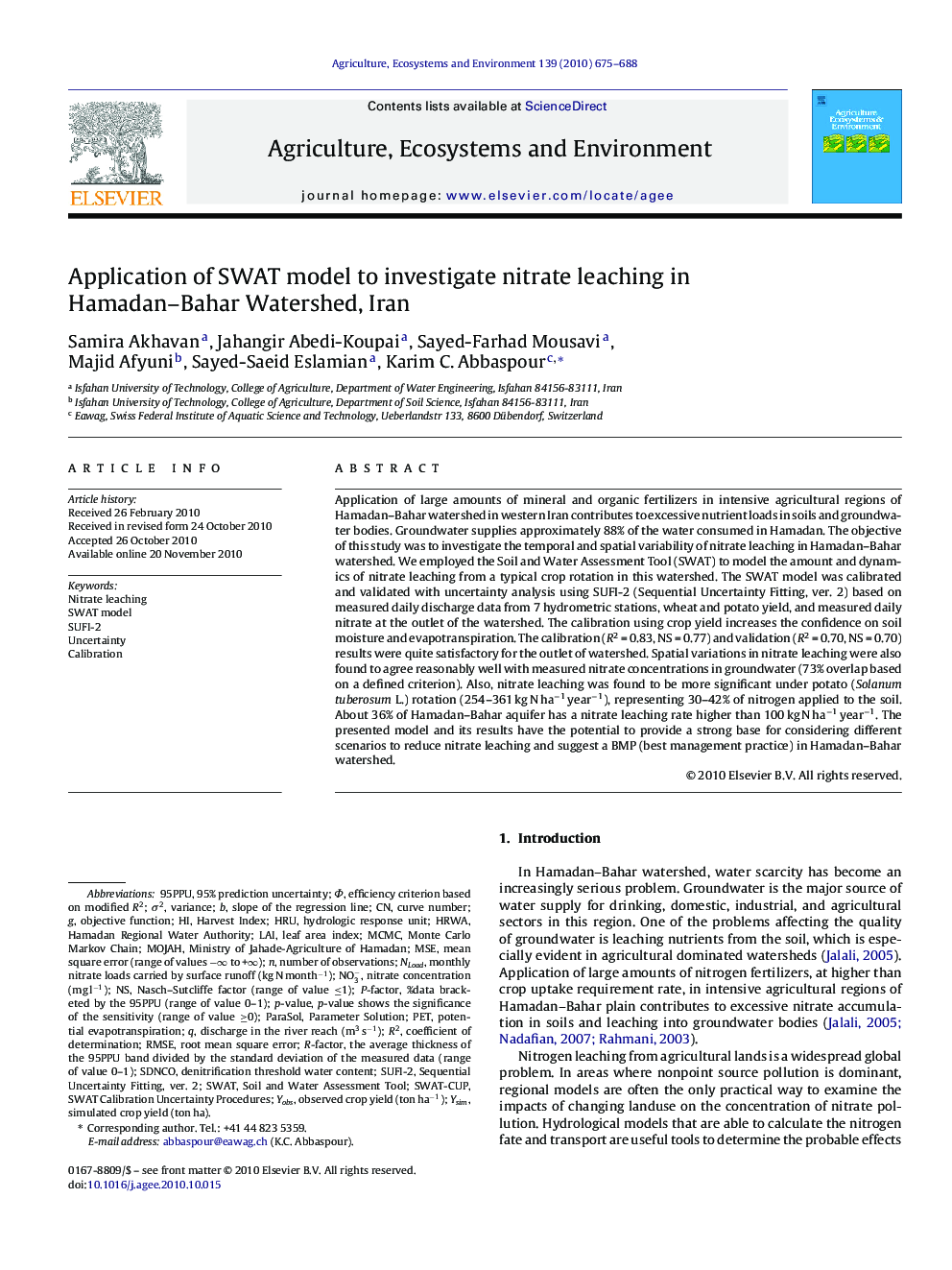| کد مقاله | کد نشریه | سال انتشار | مقاله انگلیسی | نسخه تمام متن |
|---|---|---|---|---|
| 10970578 | 1103936 | 2010 | 14 صفحه PDF | دانلود رایگان |
عنوان انگلیسی مقاله ISI
Application of SWAT model to investigate nitrate leaching in Hamadan-Bahar Watershed, Iran
دانلود مقاله + سفارش ترجمه
دانلود مقاله ISI انگلیسی
رایگان برای ایرانیان
کلمات کلیدی
MSEσ2MCMCP-factorHydrologic response unitParaSolSUFI-2HRURMSENO3− - NO3-Soil and Water Assessment Tool - ابزار ارزیابی خاک و آبp-value - ارزش pNitrate leaching - اشباع نیتراتObjective function - تابع هدفpotential evapotranspiration - تبخیر تبخیری بالقوهSWAT - تحلیل سواتnumber of observations - تعداد مشاهداتRoot mean square error - ریشه میانگین خطای مربعHarvest index - شاخص برداشتLeaf area index - شاخص سطح برگLAI - شبیهCurve Number - شماره منحنیcoefficient of determination - ضریب تعیینUncertainty - عدم قطعیتR-factor - فاکتور RSWAT model - مدل SWATMonte Carlo Markov Chain - مونت کارلو مارکوف زنجیره ایVariance - واریانس، ورداییCalibration - واسنجی یا کالیبراسیونPET - پت
موضوعات مرتبط
علوم زیستی و بیوفناوری
علوم کشاورزی و بیولوژیک
علوم زراعت و اصلاح نباتات
پیش نمایش صفحه اول مقاله

چکیده انگلیسی
ⶠWe used the Soil and Water Assessment Tool (SWAT) to build a hydrologic model for the Hamadan-Bahar watershed in western Iran. The watershed suffers from an increasing water pollution problem due to agricultural activities. ⶠThe hydrology model was calibrated, and validated with uncertainty analysis. ⶠWe used the calibrated hydrology model and further calibrate it for nitrate leaching and crop yield, using wheat and potato. ⶠWe characterized the spatial and temporal leaching pattern. ⶠIn a follow up work we will suggest a best management practice for the region.
ناشر
Database: Elsevier - ScienceDirect (ساینس دایرکت)
Journal: Agriculture, Ecosystems & Environment - Volume 139, Issue 4, 15 December 2010, Pages 675-688
Journal: Agriculture, Ecosystems & Environment - Volume 139, Issue 4, 15 December 2010, Pages 675-688
نویسندگان
Samira Akhavan, Jahangir Abedi-Koupai, Sayed-Farhad Mousavi, Majid Afyuni, Sayed-Saeid Eslamian, Karim C. Abbaspour,